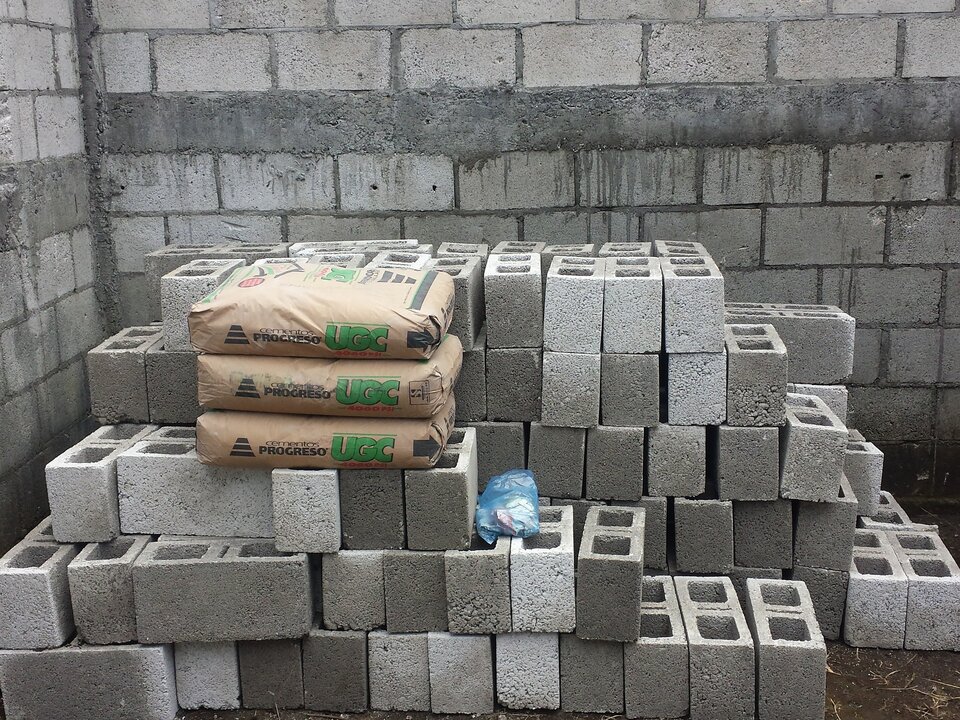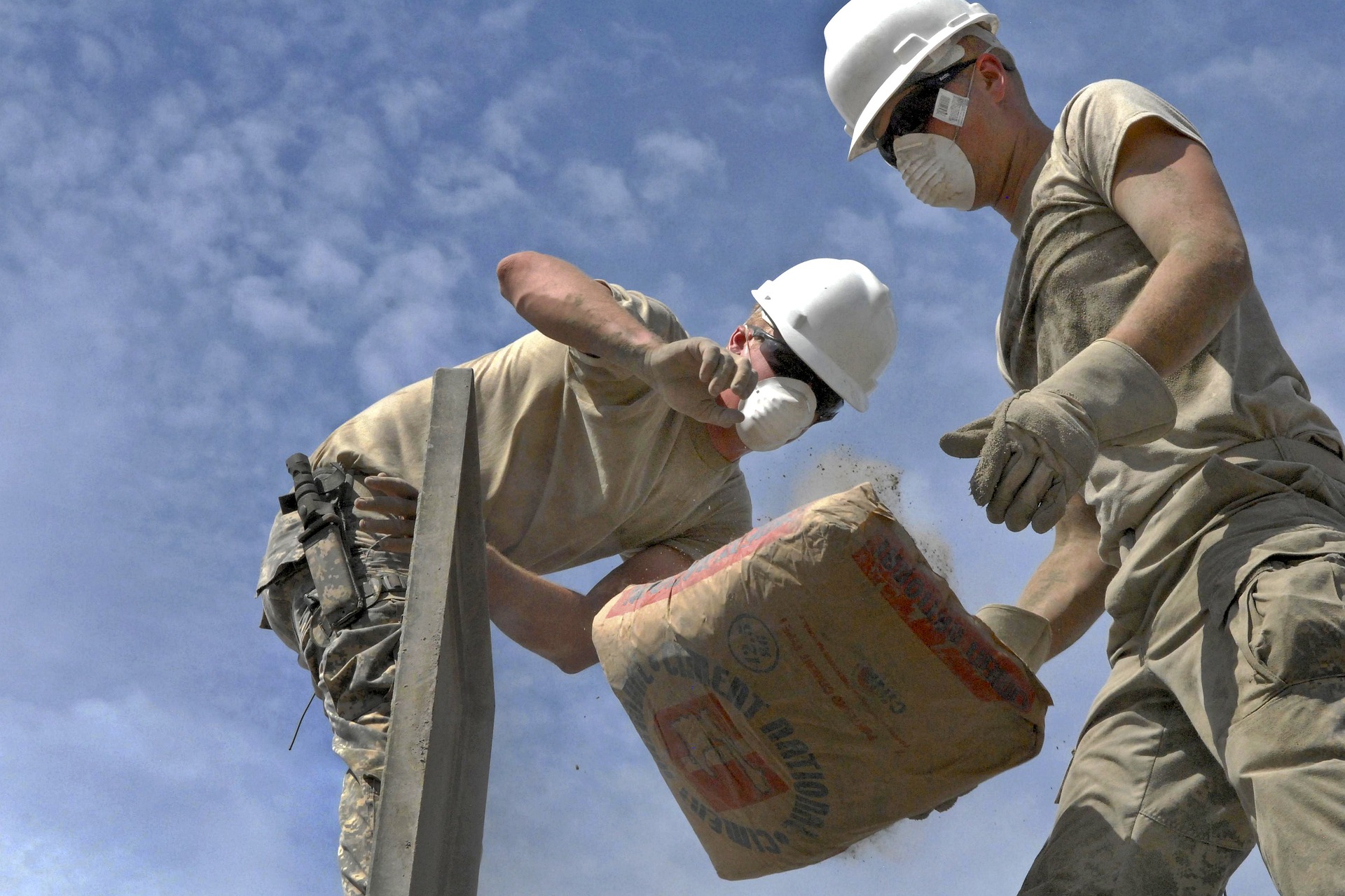
Concrete, CO2 Emissions and Efforts to Improve Our Industry
The concrete and cement industries play a pivotal role in our world, supporting the construction and infrastructure projects that keep communities growing, navigable and safe. Even so, their associated concrete CO2 emissions have developed into an obstacle all their own — one with potential to place the world’s environmental future at risk. In fact, it’s estimated that cement production accounts for 8% of the world’s global CO2 emissions. The good news is, efforts are being made on all fronts to stop carbon dioxide (CO2) trouble in its tracks.
Here, General Chipping’s concrete experts take a deep dive into the world of concrete CO2 emissions. Read on for insights into the reasons behind our industry’s emission issues, the impacts those emissions have on the world around us and steps people are taking worldwide to create a healthier future on the whole.

Why Are Carbon Dioxide Emissions So Prevalent in Our Industry?
The majority of the concrete industry’s carbon dioxide emissions originate during the production of cement. At the heart of that process is something known as clinker formation.
Clinker, one of cement’s key components, is generated by exposing a mixture of clay, limestone and other additives to temperatures of about 2,700 degrees Fahrenheit within a kiln. When heated to the right level for the right amount of time, these elements undergo chemical transformations and emerge as marble-sized balls that are later ground up and mixed with other ingredients.
The limestone’s breakdown is of particular interest as it relates to carbon dioxide emissions. Limestone undergoes a chemical reaction known as calcination — releasing CO2 into the atmosphere while leaving calcium oxide behind.
Clinker isn’t the only contributor to elevated carbon dioxide emissions. Fossil fuels such as coal, which companies use to heat the kilns, also release emissions into the atmosphere. Emissions also stem from the trucks used to transport finished cement (and crew members) to a job site or other destination.
Why is CO2 Bad for the Environment?
Although carbon dioxide, or CO2, is a naturally occurring component in Earth’s atmosphere, human-generated CO2 emissions have substantially increased the amount released. But why is CO2 bad for the environment? Here are a few of its more substantial impacts.
- Greenhouse Gas Effect: As a greenhouse gas, CO2 has the ability to trap heat within Earth’s atmosphere. Although some warming helps to ensure a planet that is safe and habitable for humans, an enhanced greenhouse effect intensifies warming and contributes to climate change.
- Global Warming & Climate Change: The greenhouse gas releases mentioned above lead to higher temperatures and changes to environmental and weather patterns. Potential impacts include more frequent and severe heatwaves, flood events, droughts and storms. Meanwhile, rising sea levels due to melting glaciers disrupt ecosystems and have direct impacts for animals and humans alike.
- Ocean Acidification: Oceans absorb an estimated 25% of human-generated CO2. And, although that absorption temporarily mitigates the atmospheric impacts, it introduces disruptions to marine life. CO2 dissolves in seawater and forms carbonic acid which increases the ocean’s pH levels. This is particularly harmful to organisms such as mollusks, coral reefs and plankton.
- Loss of Biodiversity: Many plant and animal species struggle to adapt quickly enough to survive their changing ecosystems — or aren’t able to migrate quickly enough to someplace safe. This leaves them at risk of ecosystem imbalances and/or collapse — and in extreme cases, extinction.
- Lower Air & Water Quality: It’s rare that CO2 emissions are the only thing entering the atmosphere at a given time. They are often accompanied by other pollutants that degrade water and air quality. Poor air quality leads to respiratory issues in animals and humans alike. Meanwhile, water pollution damages ecosystems and often creates health risks.
What Efforts Are Being Made to Curb Concrete Industry CO2 Emissions?
Although concrete industry CO2 emissions have proven to be a challenge, there’s nothing concrete and construction pros enjoy more than searching for solutions. There are a number of plans in the works— and some that are already employed — to help make our industry more environmentally friendly. Here are just a few of the ways we’re looking out for future generations.
- Legislation Aimed at Driving Change: Governments the world over are working to find ways to curb emissions, and there are a number of laws aimed specifically at the concrete industry. Here in the U.S., for instance, California enacted SB 596 in 2021, the first step toward the state’s goal of finding a way to achieve net-zero emissions associated with the state’s cement no later than 2045. In January 2023, New Jersey enacted tax credits for assessing concrete’s impact on the environment, and for projects which utilized lower-emission concrete. And those are just a couple of examples.
- New Blends to Cut Concrete Industry CO2 Emissions: Scientific minds have worked overtime in recent years, with the goal of creating concrete blends that are better for the environment. (And the results are encouraging!) One of many examples out there is ECOPact, a low-carbon alternative to traditional concrete. ECOPact is a tiered system that incorporates recycled concrete aggregate — and can reduce carbon emissions anywhere from 30% to 90% on a given project. Canadian firm CarbonCure has also developed a method for injecting captured CO2 into concrete to form calcium carbonate, reducing the amount of cement needed for the poured product. Other techniques encourage concrete rubble to absorb CO2, then keep it locked up inside whichever finished product that concrete goes into. In the United Arab Emirates (UAE), yet another approach incorporates brine left over from seawater desalination to create a magnesium-based cement.
- Collaborative Efforts for a Healthier Climate: Many of our own companies and associations are working hard to cut concrete industry CO2 emissions. The Portland Cement Association (PCA), for instance, is on a mission to achieve carbon neutrality — from cement creation to concrete blends and on to construction — by 2050. The association’s efforts call on collaboration from stakeholders and company leaders alike to bring that goal to reality. The National Ready Mixed Concrete Association (NRMCA) has vowed to support the PCA’s efforts and adopted its own Architecture 2030 Challenge. This challenge aims to “reduce operational carbon and embodied carbon from the built environment to net zero by 2050.” Outside of our industry itself, the U.S. government has also limited the use of high carbon-emitting building materials for its major projects.
While there’s no quick fix for cutting concrete CO2 emissions, the General Chipping team is proud to see so many of our friends and colleagues coming together for the cause. We are heartened by the efforts, we are optimistic about the future and we look forward to seeing the results of such efforts as time goes on.
